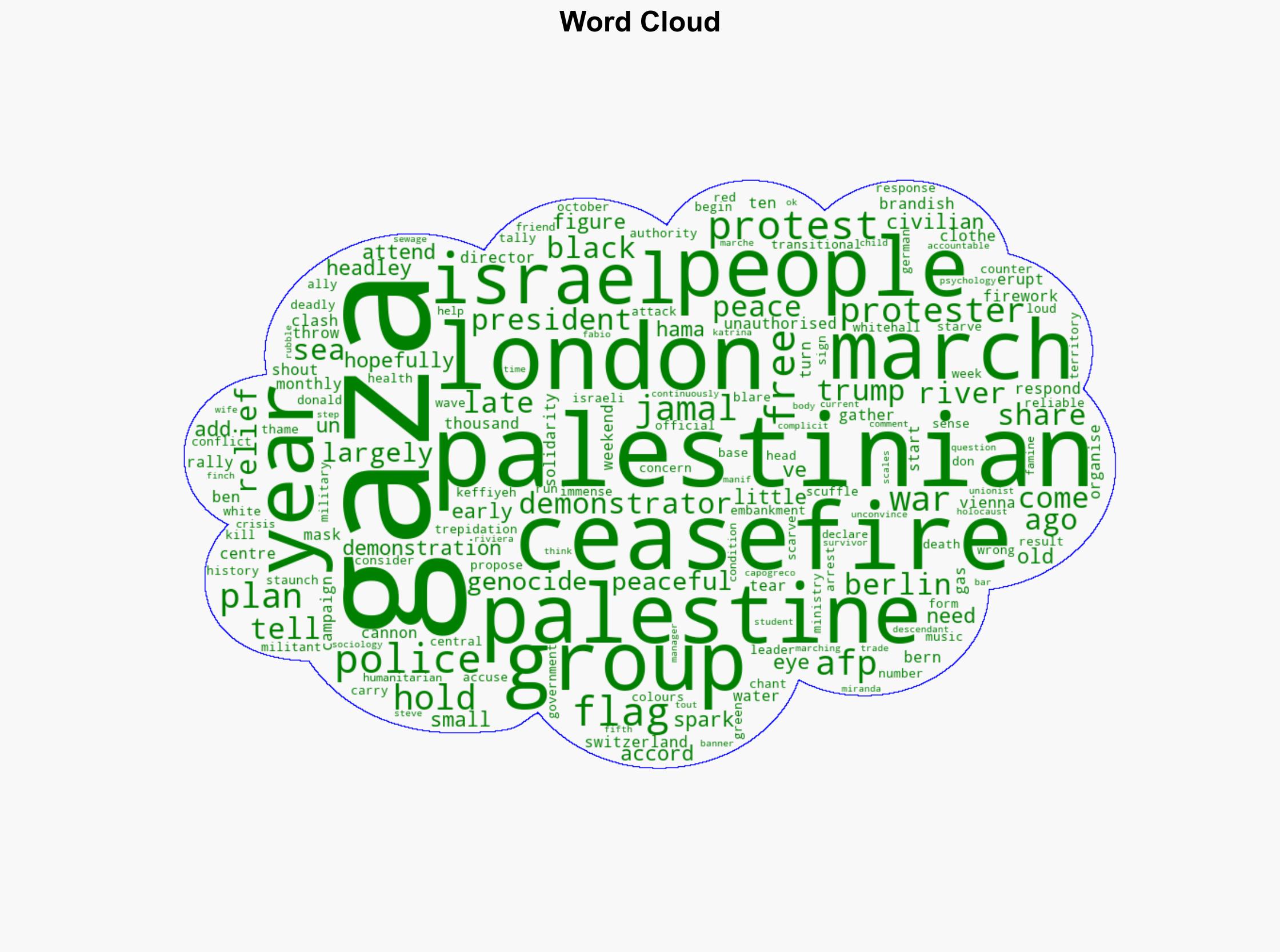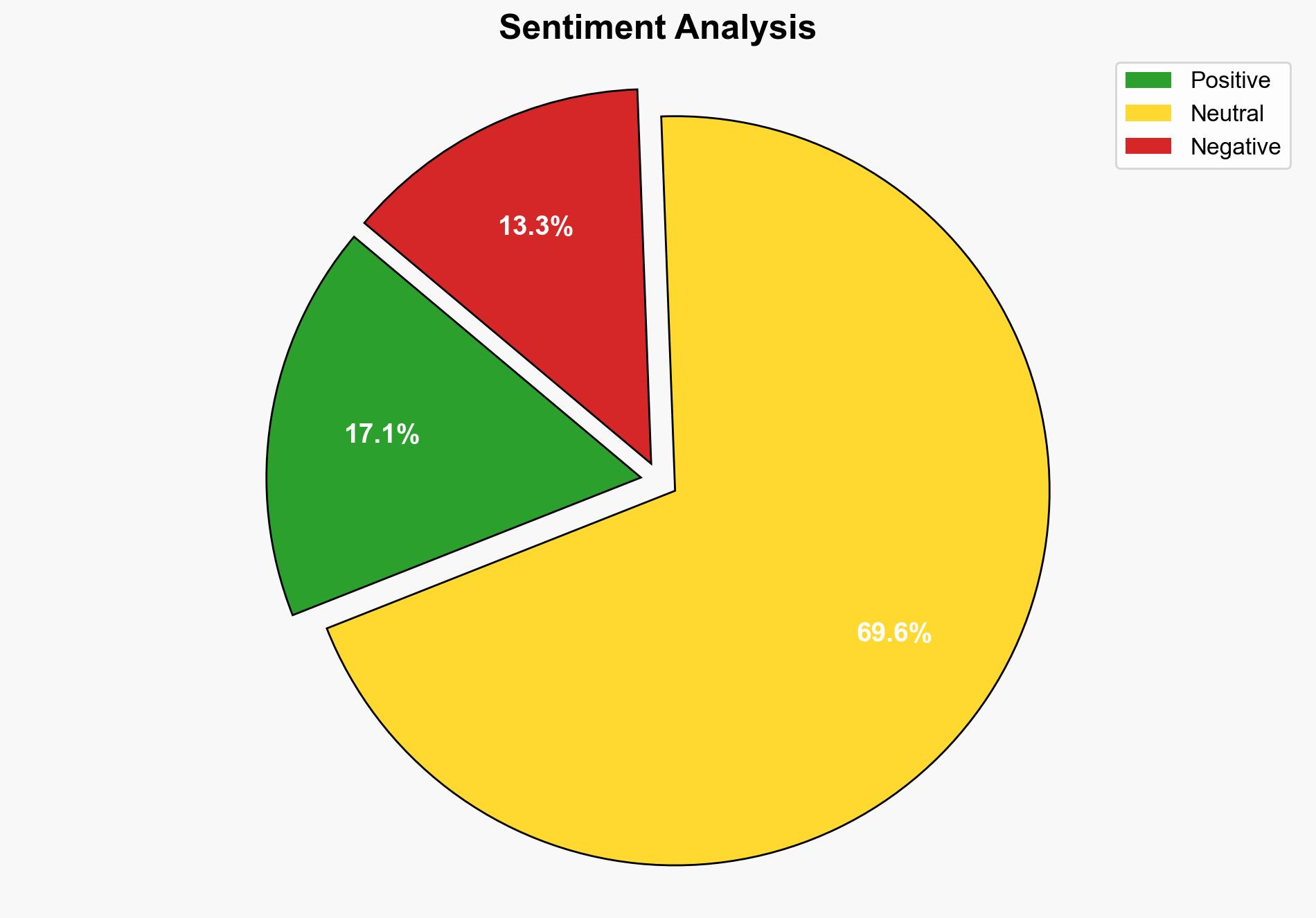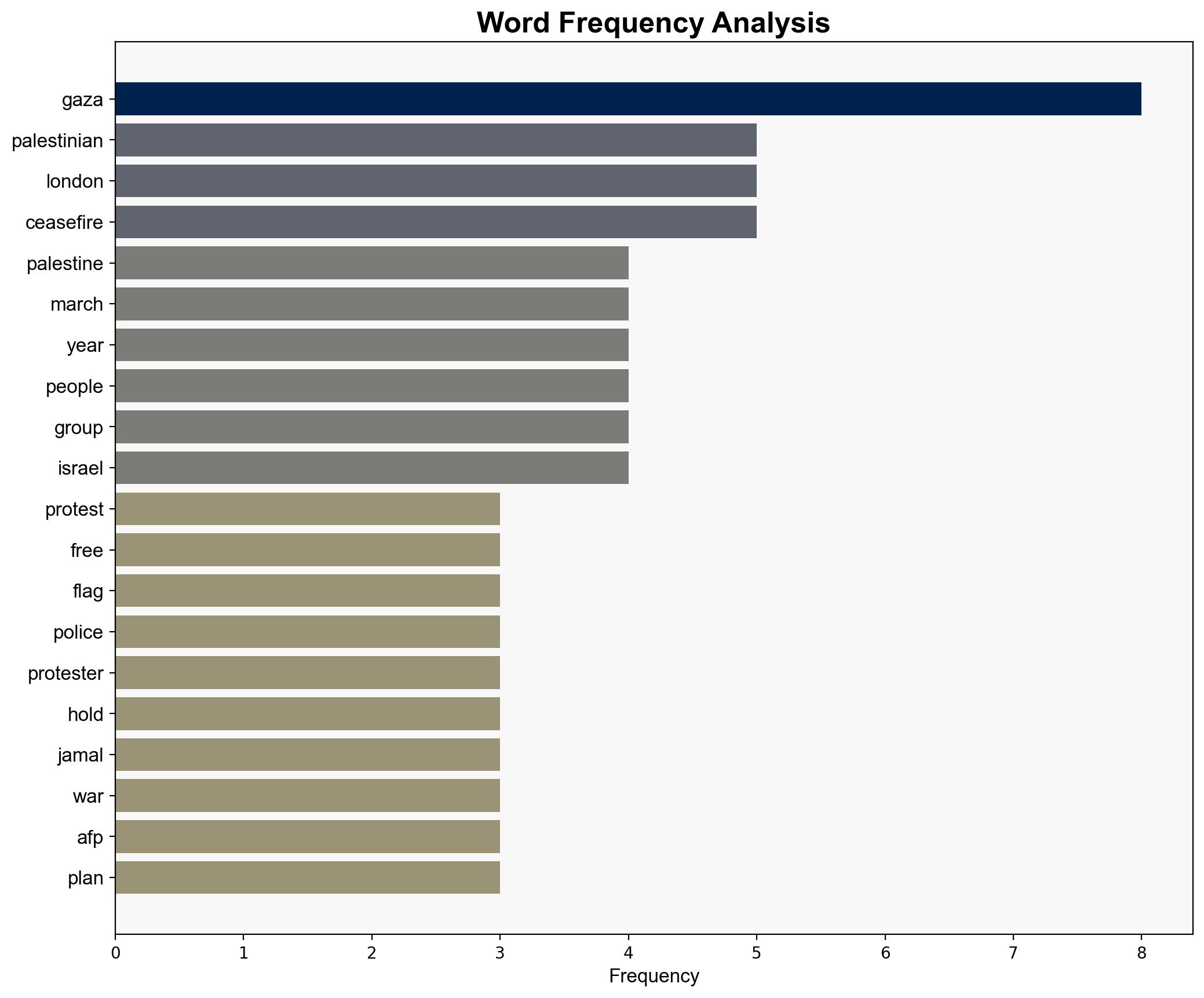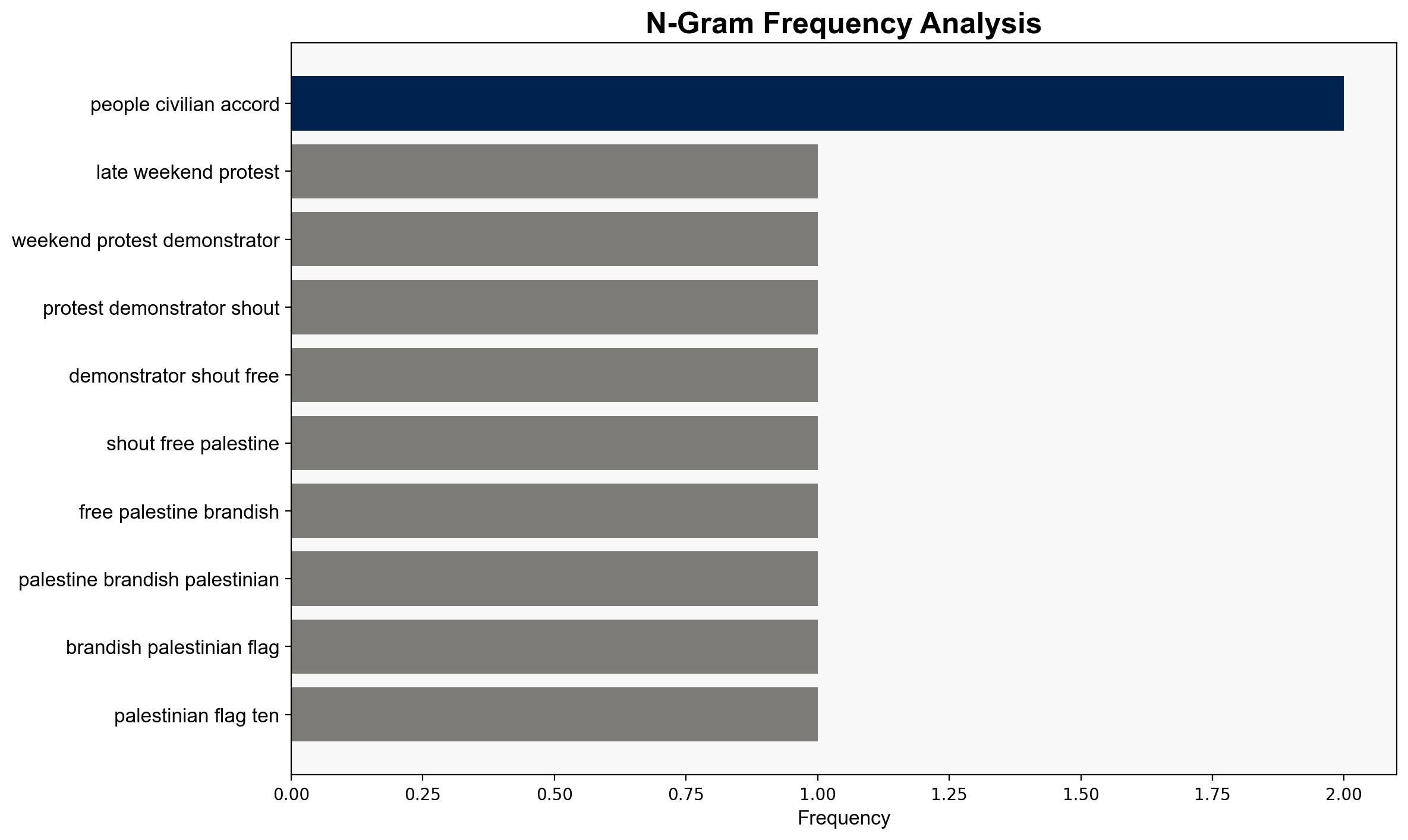Pro-Palestinian rallies held across Europe as Gaza truce holds – The Local Germany
Published on: 2025-10-12
Intelligence Report: Pro-Palestinian rallies held across Europe as Gaza truce holds – The Local Germany
1. BLUF (Bottom Line Up Front)
The most supported hypothesis is that the pro-Palestinian rallies across Europe are primarily expressions of solidarity and political dissent against perceived injustices in Gaza, with a moderate confidence level. The strategic recommendation is to monitor these movements for potential escalation into violence or influence on domestic political landscapes, while engaging in diplomatic dialogues to address underlying grievances.
2. Competing Hypotheses
1. **Hypothesis A**: The rallies are primarily expressions of solidarity with Palestinians and a response to humanitarian concerns in Gaza, driven by grassroots movements and civil society organizations.
2. **Hypothesis B**: The rallies are strategically orchestrated by external actors to destabilize European political environments and influence public opinion against Israel and its allies.
Using the Analysis of Competing Hypotheses (ACH) 2.0, Hypothesis A is better supported due to the presence of diverse participants, including students and trade unionists, and the largely peaceful nature of the protests. Hypothesis B lacks substantial evidence of external orchestration, although the presence of unauthorized protests and clashes in some areas suggests potential for exploitation by radical elements.
3. Key Assumptions and Red Flags
– **Assumptions**: It is assumed that the majority of protestors are motivated by genuine humanitarian concerns. Another assumption is that the ceasefire will hold, reducing immediate tensions.
– **Red Flags**: The unauthorized nature of some protests and the involvement of masked individuals could indicate potential for escalation. The lack of clarity on the influence of external actors is a blind spot.
4. Implications and Strategic Risks
The rallies could influence European domestic policies, potentially leading to increased scrutiny of foreign policy towards Israel and Palestine. There is a risk of radicalization if grievances are not addressed, which could lead to further unrest or violence. The geopolitical dimension includes potential strain on diplomatic relations between European countries and Israel.
5. Recommendations and Outlook
- Engage in diplomatic efforts to address humanitarian concerns in Gaza, potentially reducing the impetus for protests.
- Enhance intelligence gathering on potential external influences on protest movements.
- Scenario Projections:
- Best Case: Ceasefire holds, protests remain peaceful, leading to constructive dialogue.
- Worst Case: Protests escalate into widespread violence, destabilizing European cities.
- Most Likely: Protests continue sporadically with occasional clashes, maintaining pressure on European governments.
6. Key Individuals and Entities
– Ben Jamal: Director of the Palestine Solidarity Campaign, organizer of rallies in London.
– Steve Headley: Trade unionist expressing skepticism about peace prospects.
– Miranda Finch: Participant highlighting historical grievances.
7. Thematic Tags
national security threats, regional focus, political dissent, humanitarian crisis




